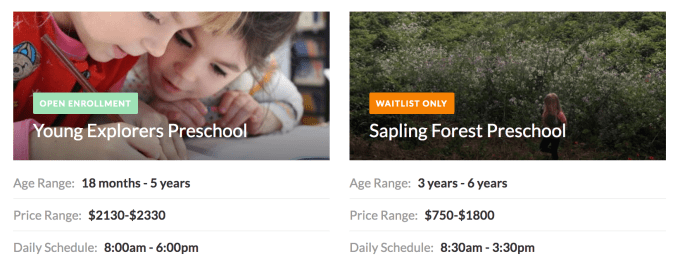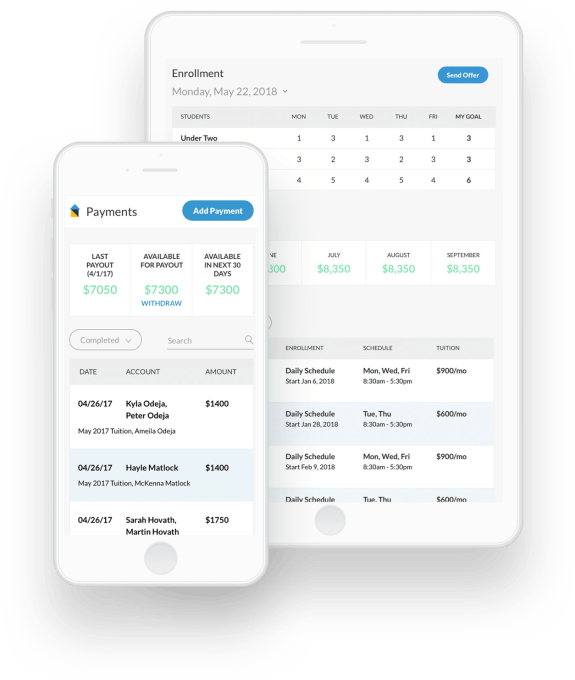“Instant booking” apps that let tourists sign up for activities on very short notice have been in the news a lot lately, partly because of Klook’s new unicorn status, but also because of the proliferation of startups in the space, especially in Asia. With so many instant booking apps, are there any niches left to fill? FunNow thinks so. Instead of targeting tourists, FunNow serves locals who want to find new things to do in their cities. The Taipei, Taiwan-based startup announced today that it has raised a $5 million Series A led by the Alibaba Entrepreneur Fund, with participation from CDIB, a returning investor, Darwin Venture and Accuvest. The capital will be used to expand FunNow into Southeast Asian and Japanese cities.
Along with a pre-A round closed last July, its newest funding brings FunNow’s total raised since its launch in November 2015 to $6.5 million. FunNow currently claims 500,000 members and 3,000 vendors, who provide more than 20,000 activities and services daily. Co-founder and CEO T.K. Chen says the startup will focus on building its presence in Hong Kong, Okinawa, Kuala Lumpur, Bangkok, Osaka and Tokyo.
One noteworthy fact about its Series A is the participation of Alibaba, which is beefing up its online-to-offline (or O2O, the business of enabling users to book and pay for offline services) offerings as competitor Meituan-Dianping prepares to go public in Hong Kong. A roster of Alibaba apps, including Koubei for local bookings, food delivery platform Ele.me and travel app Feizhu, compete against Meituan-Dianping, which describes itself as a “one-stop super app” because it offers all those services.
A not-for-profit initiative, the Alibaba Entrepreneurs Fund supports startups that might eventually contribute to the tech giant’s ecosystem. While Alibaba’s O2O apps are focused on capturing a bigger share away from Meituan-Dianping in China, Chen says future synergies may include listing FunNow’s activities on Koubei so Chinese tourists can continue using the app when they travel. (Chen added that Alibaba wants FunNow to expand in Southeast Asia as soon as possible.)
Even with a backer like Alibaba, however, the obvious question is how does FunNow compare with other instant booking apps? The most notable ones are Klook and KKday, but other players include Headout, Voyagin, GetYourGuide, Culture Trip, Peek and even Airbnb’s new “Experiences” feature.
Chen, who notes Klook’s Series A in 2015 was also $5 million, says FunNow’s deep dive into the local market sets it apart. Its biggest categories are last-minute hotel bookings, like hot spring resorts in Taipei that offer rooms for blocks of several hours in addition to overnight stays; restaurants and bars; massages and other spa services; and events like music festivals and parties.
Chen adds that catering to locals looking for fun stuff to do in their own cities means FunNow’s user engagement is high, with 70% of each month’s gross merchandise volume from repeat customers. The rest comes from first-time users and about 60% of people make another booking within 30 days after their first purchase. FunNow expects to make revenue of $16 million in 2018, three times what it made in 2017.
Most of FunNow’s users are young, in the 25-to-35 age bracket. “We are like Uber, but for booking restaurants, massages, hotels or other kinds of activities around you. We are also targeting spontaneous consumers, because almost all of our bookings are for the next 15 minutes to hour. If you look at our data, 80% of our bookings are for the next hour,” says Chen.
The company tailors its technology platform to local users, too, and relies on a patented algorithm that makes real-time availability calculations to prevent overbookings by syncing with merchant databases. Chen says users can see all available slots based on their location and search perimeters in less than 0.1 seconds and updates in real-time, so people don’t click on something only to find it’s no longer available.
FunNow also screens vendors before adding them to the platform and will delist businesses that rate below 3.5 stars. The convenience is what draws users back to FunNow instead of, say, just reading reviews on Google or asking friends for recommendations and then messaging or calling for a reservation.
Another challenge that potentially arise in the future is if Klook, KKday or other instant booking apps for tourists decide to start serving locals as well. Chen says he believes those startups will continue focusing on the growing tourist market and demand for half-day or all-day tours.
“If they want to cut into our play, they need to first find merchants one by one and also deploy strong systems to the merchant side,” says Chen. “However, once merchants use our system, it’s unlikely for them to use two systems to control availability, because you’d need to update all of them to avoid overbooking.”
Despite its first mover advantage, FunNow is also constantly improving its tech, Chen says. “Even in a minute, a business might have sold the seat to a walk-in customer, causing a overbooking and that’s the worst thing to see.”





